John P. Forman and Laurel A. Ross. 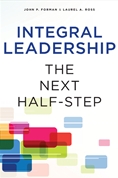 Albany, NY: Excelsior Editions, SUNY, 2013.
Albany, NY: Excelsior Editions, SUNY, 2013.
If you are looking for an introductory text that you can include in an undergraduate or Master’s course on leadership, here it is. In addition to laying out the elements of the Wilberian integral model in relation to leadership, the authors have accumulated many supporting examples from the literature, but little from direct experience. This is surprising since Forman is the Managing Director of Integral Development Associates …

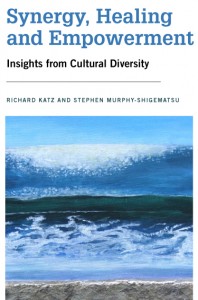 It was the cultural diversity part that drew me to this book. Richard Katz is a scholar who has done research in multiple cultures, while Stephen Murphy-Shigematsu is born of and has varied life experiences in at least two. While their work is represented here, this is an edited volume with the work of several authors.
It was the cultural diversity part that drew me to this book. Richard Katz is a scholar who has done research in multiple cultures, while Stephen Murphy-Shigematsu is born of and has varied life experiences in at least two. While their work is represented here, this is an edited volume with the work of several authors.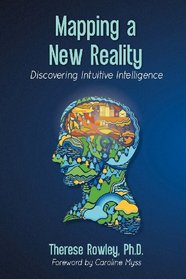
 This 100-page volume proposes that overusing our strengths gets us in trouble in relationships and leader roles. It also promotes the authors’ Leadership Versatility Index assessment. Developing individuals for leader roles is not so much about addressing weaknesses as it is about effectively managing strengths. This begins with acceptance and integration of feedback such as provided by their 360 assessment. Failure to do so results …
This 100-page volume proposes that overusing our strengths gets us in trouble in relationships and leader roles. It also promotes the authors’ Leadership Versatility Index assessment. Developing individuals for leader roles is not so much about addressing weaknesses as it is about effectively managing strengths. This begins with acceptance and integration of feedback such as provided by their 360 assessment. Failure to do so results … David K. Hurst. The New Ecology of Leadership: Business Mastery in a Chaotic World. New York: Columbia Business School Publishing, 2012.
David K. Hurst. The New Ecology of Leadership: Business Mastery in a Chaotic World. New York: Columbia Business School Publishing, 2012. Ian I. Mitroff and Donna D. Mitroff. Fables and the Art of Leadership: Applying the Wisdom of Mister Rogers to the Workplace. New York: Palgrave Macmillan, 2012.
Ian I. Mitroff and Donna D. Mitroff. Fables and the Art of Leadership: Applying the Wisdom of Mister Rogers to the Workplace. New York: Palgrave Macmillan, 2012. Hilarie Owen, Ed. New Thinking on Leadership: A Global Perspective. Philadelphia: KoganPage, 2012.
Hilarie Owen, Ed. New Thinking on Leadership: A Global Perspective. Philadelphia: KoganPage, 2012.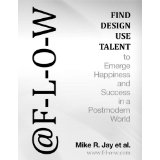 Mike R. Jay, et al. @F-L-O-W, Find, Design, Use Talent to Emerge Happiness & Success in a Post-Modern World. NP: @F-L-O-W Publishing, 2012.
Mike R. Jay, et al. @F-L-O-W, Find, Design, Use Talent to Emerge Happiness & Success in a Post-Modern World. NP: @F-L-O-W Publishing, 2012.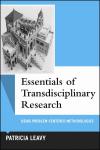 Patricia Leavy. Essentials of Transdisciplinary Research: Using Problem-Centered Methodologies. Walnut Creek, CA: Left Coast Press, 2011.
Patricia Leavy. Essentials of Transdisciplinary Research: Using Problem-Centered Methodologies. Walnut Creek, CA: Left Coast Press, 2011. Richard J. Davidson and Sharon Begley. The Emotional Life of your Brain. New York, New York: Hudson Street Press, 2012.
Richard J. Davidson and Sharon Begley. The Emotional Life of your Brain. New York, New York: Hudson Street Press, 2012.